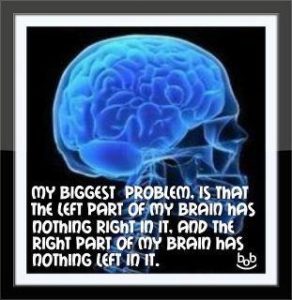
LAUGH – IT’S GOOD FOR YOUR HEALTH!
The field of gelotology is exploring the benefits of laughter. It was brought to the public’s awareness in Norman Cousins’ memoir Anatomy of an Illness. Cousins found that comedies helped him feel better and get some pain-free sleep. That’s because laughter helps the pituitary gland release its own pain-suppressing opiates. What can laughter do?· Lowers blood pressure · Increases vascular blood flow and oxygenation of the blood · Gives a workout to the diaphragm and abdominal, respiratory, facial, leg, and back muscles · Reduces certain stress hormones such as cortisol and adrenaline · Increases the response of tumor- and disease-killing cells such as Gamma-interferon and T-cells · Defends against respiratory infections–even reducing the frequency of colds–by immunoglobulin in saliva. · Increases memory and learning; in a study at Johns Hopkins University Medical School, humor during instruction led to increased test scores · Improves alertness, creativity, and memory Humor and creativity work in similar ways, says humor guru William Fry, M.D., of Stanford University–by creating relationships between two disconnected items, you engage the whole brain. Humor works quickly. Less than a half-second after exposure to something funny, and electrical wave moves through the higher brain functions of the cerebral cortex. The left hemisphere analyzes the words and structures of the joke; the right hemisphere “gets” the joke; the visual sensory area of the occipital lobe creates images; the limbic (emotional) system makes you happier; and the motor sections make you smile or laugh. So let’s laugh. What makes you laugh?
Smile . . . .
Smiles improve your appearance. Think about how you feel about a person frowning and a person smiling – who’s the most pleasing?
Smiles say more than words can. A smile can restore your balance. It lets others know you are comfortable with them, and that you willingly agree to make amends where needed.
Smiles create trust and rapport. A smile is a way of establishing mutual feelings of being on the same page, whether one-to-one or in a group. It says “I’m OK, you’re OK, and we’re all going to enjoy one another’s company.”
Smiles make you feel good. Even if you’re feeling a little blue, insert happy thoughts into your mind and just add that smile. It will trick your mind into feeling better, as endorphins are released to reduce physical or emotional stress. Have a beautiful life!





Smiles improve your appearance. Think about how you feel about a person frowning and a person smiling – who’s the most pleasing?
Smiles say more than words can. A smile can restore your balance. It lets others know you are comfortable with them, and that you willingly agree to make amends where needed.
Smiles create trust and rapport. A smile is a way of establishing mutual feelings of being on the same page, whether one-to-one or in a group. It says “I’m OK, you’re OK, and we’re all going to enjoy one another’s company.”
Smiles make you feel good. Even if you’re feeling a little blue, insert happy thoughts into your mind and just add that smile. It will trick your mind into feeling better, as endorphins are released to reduce physical or emotional stress. Have a beautiful life!





